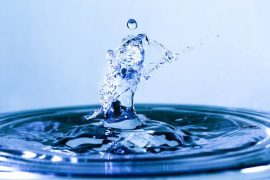Water that hasn’t been sterilized can be safely consumed by boiling. Viral, bacterial, and parasitic pathogens can all be eradicated by boiling. Another viable option is water filtration. Filtered water, on the other hand, is far superior to boiling water.
Boiled Water Facts
People have used the practice of boiling water for centuries to remove impurities and toxins, but does this approach work and how successful is it?
To destroy hazardous germs, boiling water is a simple yet efficient method for purifying water at home or in remote locations. The boiling point of water is 212 degrees Fahrenheit, but the majority of bacteria can only live for 30 minutes at water temperatures over 160 degrees Fahrenheit. Boiling water also has the added benefit of preserving the minerals already present in the source water. Consuming warm water may help with digestion and blood circulation, among other things.
Does Boiling Tap Water Make It Pure?
Boiling water kills bacteria, but it does not purify the tap water, which still contains impurities. One of the most important responsibilities of municipality is to ensure that tap water is free of microorganisms. As a matter of fact, bacteria are the only impurity that must be completely eliminated by law.
Chemicals, heavy metals, herbicides, insecticides, and other organic and inorganic pollutants aren’t destroyed by the high temperatures of boiling water. If you boil tap water, you are merely increasing the density of pollutants in it.
What Is Filtrated Water?
If you use the correct multimedia filters, filtration is an excellent method for cleaning water and getting rid of contaminants. To produce water fit for human consumption, this technique employs a combination of chemical and physical processes.
Using a simple and fast filtration process, filtration removes big molecules as well as tiny, harmful pollutants that might cause sickness. Water that has been filtered is thought to be healthier than water that has been purified in other ways since filtering does not remove all of the mineral salts. Using a chemical absorption technique, it is one of the most successful water purification procedures that remove undesirable substances from water.
When it comes to the selective removal of considerably smaller molecular contaminants like chlorine and pesticides, filtering is regarded as more successful than reverse osmosis. Filtration is also less expensive since it doesn’t use as much energy as distillation or reverse osmosis. Because so little water is wasted during the filtration process, this is a cost-effective way of water purification.
Filtered Water’s Positive Effects
Filtered water is water that has been treated mechanically to remove pollutants, chemicals, and microorganisms. A water purifier may remove pathogens from the water you consume.
Filtered water from a water purifier, as opposed to the water that has been boiled, is more convenient, safe, and reliable. You may boost your family’s health and immune system by having easy access to filtered water. Increased use of filtered water assists with weight reduction and improves your skin’s health by speeding up metabolism.
Conclusion
We observed that boiling water does not entirely remove dangerous elements such as lead and chlorine from water, so we decided to filter the water instead. When compared to boiling water, filtered water is healthier for your health and has a slew of additional advantages.
